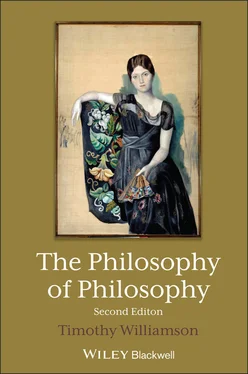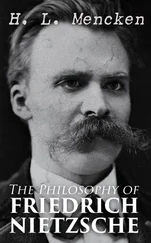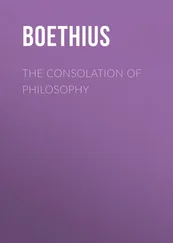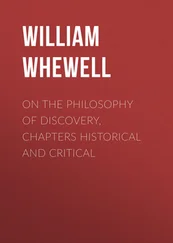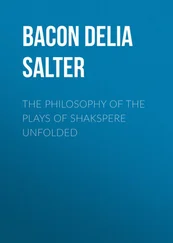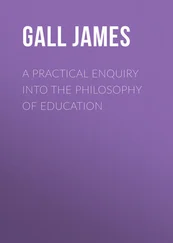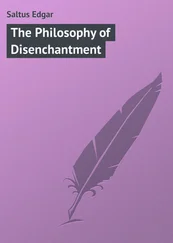The second edition contains six short additional sections on naturalism, 11.1–11.6. Their main concerns are to separate extremist versions of naturalism from moderate ones, to emphasize the implausibility of the extremist versions, and to show that the moderate versions are fully compatible with armchair methods.
4. Concepts, understanding, analyticity
Some reactions to the book made me wish that I had been more explicit about my terminology. For example, I often used the words “concept” and “conceptual,” but did little to define or clarify them. The reason was that I borrowed those words from my opponents , primarily to articulate their views and arguments – to the effect that philosophy is in some distinctive sense a “conceptual” activity. I wanted to be fair to my opponents by not defining or clarifying the terms in ways which they might reject. Moreover, such views of philosophy come in numerous sub-varieties, which gloss the words in different ways, as I acknowledged (17, this volume). Since the same forms of argument often worked against different sub-varieties, I used the words “concept” and “conceptual” in a somewhat schematic way, to avoid unnecessary repetition.
The upshot of Chapter 4is that there are no “conceptual” truths or connections in any sense helpful to my opponents. If one likes, one can define a “concept” to be the actual or potential meaning of a linguistic expression, which it shares with all synonymous expressions, appealing to whatever standard of sameness in meaning is made available by a well-developed semantic theory. However, I argued that such a standard will be too coarse-grained to serve my opponents’ purposes. For example, it will not make even the most elementary logical truths “conceptual” in any distinctive sense. Such conclusions should have made it clear that “concept” and “conceptual” were not load-bearing terms in my statements of my own positive views.
A little unwisely, I sometimes also wrote of applying “concepts” and of “conceptual” practices in stating my own views, not only in going along with my opponents’ ways of talking for the sake of argument. I could just as well have written instead of applying words and of linguistic practices . In those cases, the step of abstraction from linguistic expressions to concepts was idle. For instance, all the work can be done by the word “vixen” and the property of being a vixen, cutting out the useless middle man, the concept vixen . 11In retrospect, I wish I had stuck to the more perspicuous metalinguistic formulations in stating my own views, and not muddied the waters by sentimentally continuing to employ the term “concept.”
For similar reasons, it would be more open to replace currently fashionable talk of “conceptual engineering” by talk of “linguistic engineering.” After all, our direct conscious and social control is of linguistic practices rather than ways of thinking, and our indirect influence on the latter is typically through the former. 12
For some readers, my use of the word “analytic” was also misleading, since they adhered to its older, historically and etymologically justified sense in which analytic truths are corollaries of conceptual analyses. On that view, “Vixens are female foxes” is both analytic and a conceptual truth, whereas “Red shades are not green” is not analytic but may still be a conceptual truth. I followed much current philosophical usage, which treats “analytic truth” and “conceptual truth” as interchangeable.
With these health warnings, I have left the terminology of the chapters from the first edition unchanged, since readers may wish to see how I originally put things, for purposes of comparison.
The six short additional sections, 12.1–12.6, are all replies to philosophers who took issue with the book on these topics.
5. Other topics
As a student at Oxford in the 1970s, my exposure to Wittgenstein’s influence helped me build up enough antibodies to resist it for a lifetime (see Section 9.1). Although his influence had greatly declined by the time I wrote the first edition (and has since declined further), he was still too salient a landmark to be ignored in a discussion of philosophical methodology, especially since in some respects my viewpoint stood directly opposite his. Responses to the first edition showed that his ideas were still widespread in the international community of philosophers. The six short additional sections, 13.1–13.6, all reply to philosophers whose approach to the philosophy of philosophy is strongly marked by Wittgenstein’s influence.
In the book, I did not intend to cast Wittgenstein, or anyone else, as the villain of the piece. Obviously, I am no Wittgenstein scholar; I am happy to leave detailed engagement with his texts to those with more interest in them. My primary interest has been in combating mistaken assumptions about philosophy widely held by living philosophers, without worrying too much about their historical origins. But philosophers with Wittgensteinian sympathies were strongly represented amongst the authors whom I was invited to respond to or review, perhaps because editors hoped for a lively debate.
The final group of additional sections, 14.1–14.6, contains six short pieces which did not fit neatly into any of the previous sections. Two discuss popular philosophy; two reply to critical responses to the first edition; two review books about the nature and value of philosophy.
6. Work published elsewhere
It may be useful to sketch other work in which I have developed themes from the first edition, which has not been included here because it took a more general approach, in either epistemology or the philosophy of language.
Chapter 6of the first edition analyzed the arguments underlying thought experiments in terms of counterfactual conditionals. The latter were parsed in the traditional way, as the result of applying a two-place sentential operator to a pair of input sentences, the antecedent and the consequent. The envisaged semantics was of the kind proposed by David Lewis in his classic treatment. This approach involved some awkwardness in formalizing the natural language arguments, specifically in handling the anaphoric dependence of pronouns in the consequent (the judgment about the scenario) on quantified terms in the antecedent (the original description of the scenario). A technical appendix is devoted to that issue (307–10, this volume). Another technical appendix concerns the derivation of the logic of metaphysical modality within the complex logic of the counterfactual conditional, given definitions of the former in terms of the latter (295–306, this volume). That appendix furthers the book’s anti-exceptionalism: as argued in Chapter 5of the first edition, philosophers’ metaphysical modality is just a limiting case of counterfactual constructions integral to ordinary, practical thought.
Much more recently, I have come to a quite different view of the semantics of the counterfactual conditional. It is best understood as a contextually restricted strict conditional, the result of composing the contextually restricted local necessity operator “would” with the ordinary “if,” read as a material conditional (2020a: 103–58, 166–88). In place of A◽ →B one has ◽(A ⊃ B), but with ◽restricted to contextually relevant possible worlds. As a welcome side-effect, this drastically simplifies the treatment of anaphoric relations between antecedent and consequent, since they are no longer separated by a modal operator. It also provides greater flexibility in selecting the contextually relevant worlds to verify the scenario to suit the needs of the thought experiment. Metaphysical necessity becomes a straightforward limiting case of “would.” The overall effect is to preserve the anti-exceptionalist spirit of the original, but in a streamlined and more flexible framework (2020a: 229–41). 13
Читать дальше
